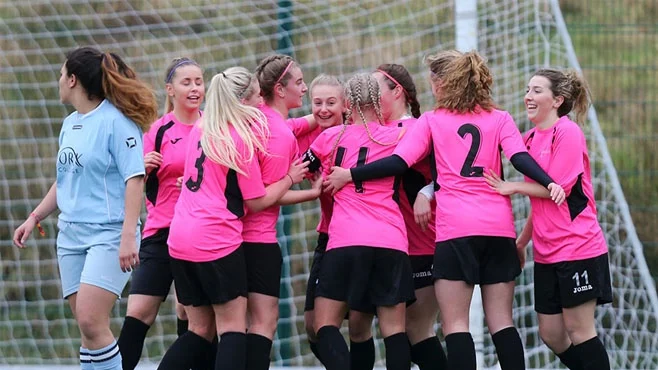Teamwork is the cornerstone of success in any sports endeavor. Whether it’s an individual sport or a team sport, teamwork is critical to achieving success. In this article, we will explore the importance of teamwork in sports and how it can help athletes achieve their goals.
Contents
Improved Communication
One of the essential elements of teamwork in sports is improved communication. In team sports, players must communicate effectively with each other to coordinate their efforts and achieve their goals. Effective communication ensures that everyone on the team is aware of their role and responsibilities, and it helps to prevent misunderstandings and errors.
Improved Trust
Teamwork also fosters trust among teammates. When players work together, they learn to trust each other’s abilities and judgment. This trust allows teammates to rely on each other during critical moments, such as when the game is on the line, and it helps to build a sense of camaraderie and loyalty among the team.
![Is Teamwork being a Key to Success in any kind of Sport? [1 min read]](https://fairgaze.com/images/UploadedImages/thumbs/0297320_0297320_trwffgg.jpg)
Better Problem Solving
Teamwork is also beneficial in sports because it allows for better problem-solving. In team sports, challenges and obstacles will inevitably arise, such as a strong opponent, an injury to a key player, or unfavorable weather conditions. When faced with these challenges, a team that works together can develop creative solutions and adapt to changing circumstances more effectively than a group of individuals working independently.
Enhanced Performance
Another significant benefit of teamwork in sports is enhanced performance. When teammates work together and support each other, they can achieve more than they would on their own. Teammates can help each other identify weaknesses and develop strategies to overcome them, and they can provide encouragement and motivation to help each other push through difficult moments.
Developing Leadership Skills
Teamwork in sports can also help athletes develop leadership skills. When players work together, they learn to communicate effectively, delegate tasks, and make decisions as a group. These skills are valuable not just on the playing field, but also in other areas of life, such as school, work, and relationships.
Fostering Positive Relationships
Finally, teamwork in sports can help to foster positive relationships among teammates. When players work together and support each other, they develop a sense of camaraderie and friendship that can last a lifetime. These positive relationships can help to build self-confidence, reduce stress, and improve overall well-being.
Tips for Building Stronger Teams
While the benefits of teamwork in sports are clear, building a strong team can be a challenge. Here are some tips for developing a stronger team:
Establish clear goals and objectives: A team must have a clear understanding of what they are working towards and what success looks like.
Encourage communication: Encourage open communication among teammates, coaches, and support staff to ensure that everyone is on the same page.
Build trust: Encourage teammates to build trust by being reliable, honest, and supportive.
Foster a positive team culture: Create a positive team culture that values teamwork, respect, and hard work.
Develop individual skills: While teamwork is critical, each player must also work on developing their individual skills to contribute to the team’s success.
Emphasize the importance of commitment: Building a strong team requires a commitment from everyone involved, so emphasize the importance of staying focused and working hard.
Conclusion
Teamwork is critical to achieving success in sports, and it offers many benefits, including improved communication, trust, problem-solving, performance, leadership skills, and positive relationships. By following the tips above and fostering a culture of teamwork, coaches, athletes, and support staff can develop stronger, more successful teams.



